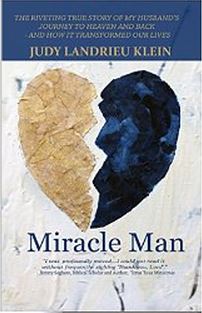Dr. George Carey, the former Archbishop of Canterbury, has changed his mind about euthanasia. Once an opponent, he announced last week that he now supports the killing of some terminally ill persons as a means of avoiding “needless suffering.”
Carey released his statement in defense of an assisted dying bill which is scheduled for debate in the House of Lords on Friday, July 18. The bill, which had been introduced by former Labour lord chancellor Lord Falconer of Thoroton, would legalize assisted dying for the terminally ill in England and Wales.
For the record, the Church of England is strongly opposed to the bill. Lord Carey, though, reversed his position after witnessing the suffering of Tony Nicklinson, who suffered from locked-in syndrome. Carey is quoted in The Guardian:
“The fact is that I have changed my mind. The old philosophical certainties have collapsed in the face of the reality of needless suffering.
“It was the case of Tony Nicklinson that exerted the deepest influence on me. Here was a dignified man making a simple appeal for mercy, begging that the law allow him to die in peace, supported by his family. His distress made me question my motives in previous debates. Had I been putting doctrine before compassion, dogma before human dignity?
“I began to reconsider how to interpret Christian theology on the subject. As I did so, I grew less and less certain of my opposition to the right to die.”
Carey went on to explain why he turned away from long-standing church teaching. “Until recently,” he wrote,
“…I would have fiercely opposed Lord Falconer’s bill, following the traditional line of the Christian church. I would have used the time-honoured argument that we should be devoting ourselves to care, not killing.
“I would have paraded all the usual concerns about the risks of ‘slippery slopes’ and ‘state-sponsored euthanasia’. But those arguments which persuaded me in the past seem to lack power and authority when confronted with the experiences of those approaching a painful death.
“It fails to address the fundamental question as to why we should force terminally ill patients to an unbearable point. It is the magnitude of suffering that has been preying on my mind as the discussion over the right to die has intensified.”
* * * * *
But while Lord Carey has made the emotional journey toward accepting euthanasia as a kind of final solution for persons with intractable pain, not everyone agrees with him.
Dr. Diane E. Meier is a case in point. Meier is Director of the Center to Advance Palliative Care at the Mount Sinai Medical Center in New York City. She was once an advocate of assisted suicide, but has changed her mind. She notes that the movement to embrace assisted suicide is led, not by suffering patients, but by the “worried well” who fear that their loves ones will not want to go on living when facing severe illness. Actually, though, she has come to see that this is not true: that humans want to live, even in the face of pain and adversity.
At a community seminar in 2011 in Vermont, Dr. Meier said:
What’s also very interesting is that the movement to legalize assisted suicide is overwhelmingly driven by the ‘worried well’ – by people who are so terrified of the loss of control that illness and death, dying and death bring – that there’s a sort of reaction formation: “Damn it, I’m gonna take control back” over something that’s so terrifying. But, for millions of years, humans have lived and died in their families. And it’s not that scary. It’s pretty natural, like birth.
And when you look at – “What do sick people want?” – Sick people almost always want to continue to live. And it took my experience with sick people who, if it were me, I’d say, “I want assisted suicide,” and they still want to live. Overwhelmingly, people want to live, in spite of conditions that the “worried well” would think are intolerable.
Dr. Meier goes on to describe a patient with Lou Gehrig’s disease whose story was featured on Bill Moyer’s series “On Our Own Terms: Dying in America”:
I don’t know if you remember that patient with Lou Gehrig’s disease whose wife was taking care of him and Moyers went back repeatedly, and the first time he said, “Well, if I’m in a wheelchair all the time, that’s it, I’m outta here.” So, Moyers goes back six months later, he’s fulltime in a wheelchair, he can’t do anything for himself, and, “It’s okay.” Then he says, “Well, if I have to get to a point where my wife has to change me and bathe me and I can’t take care of my own business, I’m outta here.” He goes back six months later, that’s exactly what he needs and life is still worth living. Because people adjust, people are remarkably resilient. And life is precious, and your vision of what’s worth tolerating changes.
Dr. Meier worries that legalizing physician-assisted suicide in America, where doctors are often overwhelmed and overextended, would have deleterious effects. The patients who might request this, she notes, are the ones who need thoughtful, extended conversations about what is motivating them to want to die. It may be depression or fear of pain; but what these patients really need is for doctors to listen to them and to offer encouragement at a difficult time. Doctors, however, have neither the training nor the time to engage in that kind of careful discussion with seriously ill patients.
* * * * *
A 2002 study published in the Journal of the American Medical Association (JAMA) would seem to bear this out. Researchers Dr. Paul Bascom and Dr. Susan Tolle reported that 90 percent of people who request assisted suicide will eventually change their minds. According to the Bascom-Tolle study:
Studies of dying patients have shown that about half would like the option of physician-assisted suicide (PAS) to be available for possible future use. Those percentages decrease significantly with each step patients take toward action. Studies show that although about 10% of patients seriously consider PAS, only 1% of dying patients specifically request it, and 1 in 10 of those patients actually receive and take a lethal prescription.
However, most patients’ desires for PAS diminish as their underlying concerns are identified and addressed directly. To help identify concerns motivating a patient’s request for PAS, physicians should talk with patients about their expectations and fears, options for end-of-life care, goals, family concerns and burdens, suffering or physical symptoms, sense of meaning and quality of life, and symptoms of depression.
A patient with advanced amyotrophic lateral sclerosis (ALS) who requested PAS illustrates how a hasty response may adversely affect patient care and the health care team. Although physicians should remain mindful of their personal, moral, and legal concerns, these concerns should not override their willingness to explore what motivates a patient to make this request. When this approach is taken, suffering can be optimally alleviated and, in almost all cases, the patient’s wishes can be met without PAS.
* * * * *
The Catechism of the Catholic Church addresses the issue of euthanasia, and notes that it is always wrong to deliberately take the life of another person. Catholic teaching is nuanced, however, to permit the withdrawal of medical procedures which are burdensome, even if such action hastens the patient’s natural death. Note the important distinction between direct euthanasia and withdrawal of treatment:
2276 Those whose lives are diminished or weakened deserve special respect. Sick or handicapped persons should be helped to lead lives as normal as possible.
2277 Whatever its motives and means, direct euthanasia consists in putting an end to the lives of handicapped, sick, or dying persons. It is morally unacceptable.
Thus an act or omission which, of itself or by intention, causes death in order to eliminate suffering constitutes a murder gravely contrary to the dignity of the human person and to the respect due to the living God, his Creator. The error of judgment into which one can fall in good faith does not change the nature of this murderous act, which must always be forbidden and excluded.
2278 Discontinuing medical procedures that are burdensome, dangerous, extraordinary, or disproportionate to the expected outcome can be legitimate; it is the refusal of “over-zealous” treatment. Here one does not will to cause death; one’s inability to impede it is merely accepted. The decisions should be made by the patient if he is competent and able or, if not, by those legally entitled to act for the patient, whose reasonable will and legitimate interests must always be respected.
2279 Even if death is thought imminent, the ordinary care owed to a sick person cannot be legitimately interrupted. The use of painkillers to alleviate the sufferings of the dying, even at the risk of shortening their days, can be morally in conformity with human dignity if death is not willed as either an end or a means, but only foreseen and tolerated as inevitable Palliative care is a special form of disinterested charity. As such it should be encouraged.











